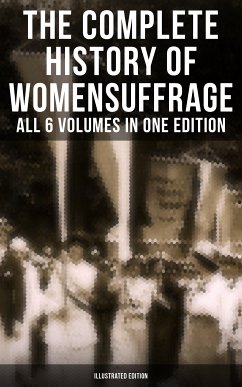
Society as I Have Found It (eBook, ePUB)

PAYBACK Punkte
0 °P sammeln!
In 'Society as I Have Found It' by Ward McAllister, readers are immersed in a detailed and incisive exploration of high society in 19th-century New York. McAllister, known for his wit and social prominence, offers a fascinating insider's perspective on the customs, etiquette, and social hierarchy of the time. Written in a charming and witty style, the book provides a valuable portrayal of Gilded Age society and its peculiarities, making it a compelling read for those interested in social history and cultural studies. McAllister's keen observations and sharp commentary add depth and insight to ...
In 'Society as I Have Found It' by Ward McAllister, readers are immersed in a detailed and incisive exploration of high society in 19th-century New York. McAllister, known for his wit and social prominence, offers a fascinating insider's perspective on the customs, etiquette, and social hierarchy of the time. Written in a charming and witty style, the book provides a valuable portrayal of Gilded Age society and its peculiarities, making it a compelling read for those interested in social history and cultural studies. McAllister's keen observations and sharp commentary add depth and insight to his portrayal of the era, shedding light on the societal norms and values of the time. Through anecdotes and personal experiences, he paints a vivid picture of the world he inhabited, offering a unique glimpse into a bygone era. Readers will find themselves captivated by McAllister's engaging narrative, gaining a deeper understanding of the intricate social structures that defined this fascinating period in American history.
Dieser Download kann aus rechtlichen Gründen nur mit Rechnungsadresse in A, B, BG, CY, CZ, D, DK, EW, E, FIN, F, GR, H, IRL, I, LT, L, LR, M, NL, PL, P, R, S, SLO, SK ausgeliefert werden.













